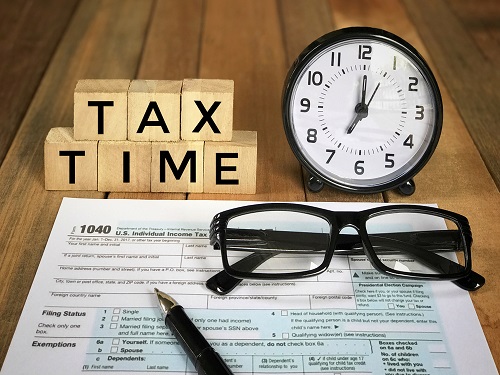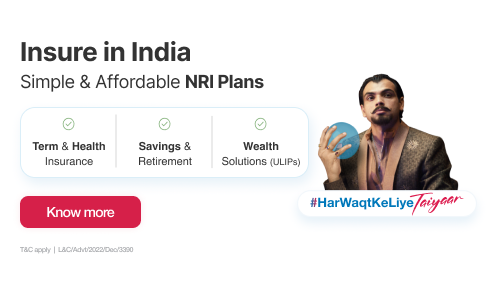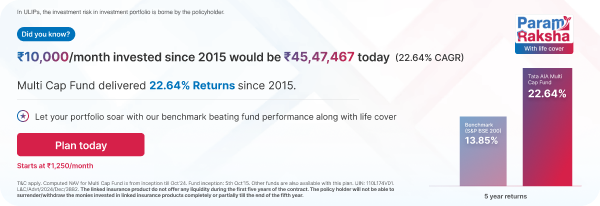11 Important Income Tax FAQs You Must Know About
2-August-2021 |
As June approaches, the tax filing season inches closer. Every year, panic grips the nation around this time, with many taxpayers being unaware of how to pay their income tax right. We attribute this panic to a lack of awareness. In this article, we will answer some basic questions you may have on how to file your income tax return, how you can avail yourself of tax relaxations using a term policy, and most importantly, how you can do this yourself.
Yes, if you thought a CA was indispensable, you may be wrong! Lately, the processes have become far more accessible, with the facility to pay taxes online.
What does income tax mean?
Let us start from the beginning and look at the basic question: What does income tax mean? Simply put, it is the tax a nation’s government imposes on its working individuals. In our case, the income tax is levied by the Government of India according to the Income Tax Act, 1961. For each financial year’s earnings, where a financial year starts from April 1st and ends on March 31st of the next year, India’s working citizens falling under the relevant tax slabs must file a tax return.
How is your tax calculated?
According to the Income Tax Act, 1961, any Indian citizen who receives a salary from an Indian or foreign organization while operating in the territory of India or earns profits from an Indian business or land (in rental income/trade) or generates an income from investments or other sources will be liable to file the income tax return.
What are the various tax slabs as per FY 2020-2021?
FY 2020-2021 saw two different tax regimes given the extraordinary financial turmoil caused by the pandemic. As per the old regime, the following rules are relevant:
- No tax on income up to ₹ 2.5 Lakh.
- 5% tax on income between ₹ 2.5 Lakh and ₹ 5 Lakh.
- 20% tax on income between ₹ 5 .00 Lakh and ₹ 10 Lakh.
- 30% tax on income > ₹ 10 Lakh.
- 20% surcharge on the income tax for income between ₹ 50 Lakh and ₹ 1 crore.
- 15% surcharge on the income tax for income above ₹ 1 crore.
To curb the Covid-19 wave, the government announced a national lockdown. The lockdown continued for over three months for states like Rajasthan and Maharashtra, which obviously meant a huge economic loss. Keeping that in mind, the government revised its tax plans for FY 2020-2021. As a taxpayer, you can still choose to pay according to the old regime.
For the financial year 2020-2021, the tax slabs applicable under the new regime are:
● No tax for ₹ 0.0 – ₹ 2.5 Lakh.
● 5% (with tax rebate u/s 87a) for ₹ 2.5 Lakh - ₹ 3.00 Lakh and ₹ 3.00 Lakh – ₹ 5.00 Lakh.
● 10% for ₹ 5.00 Lakh - ₹ 7.5 Lakh.
● 15% for ₹ 7.5 Lakh – ₹ 10.00 Lakh 15%.
● 20% for ₹ 10.00 Lakh – ₹ 12.50 Lakh.
● 25% for ₹ 12.5 Lakh - ₹ 15.00 Lakh.
● 30% for income > ₹ 15 Lakh.
● A surcharge of 10% on your income tax if total income > ₹ 50 Lakh.
● A surcharge of 15% on your income tax if total income > ₹ 1 crore.
● A surcharge of 25% on your income tax if total income > ₹ 2 crore.
● A surcharge of 37% on your income tax if total income > ₹ 5 crore.
Please note that tax returns are subject to personal provisions, the central budget, etc.
- No tax on income up to ₹ 2.5 Lakh.
What are the standard deduction rates for AY 2020-2021?
The standard deduction allows pensioned or salaried individuals to avail of a deduction of up to ₹ 50,000 for AY 2020-2021 if the individual chooses to pay taxes and file returns according to the old regime.
Who is exempt from taxes?
Citizens and NRIs with incomes up to or below ₹ 2.5 Lakh.
Senior citizens with incomes up to ₹ 3.5 Lakh.
Individuals engaged in certain practices such as farming.
Income earned on life insurance policies upon maturity (provided there is no other source of income). However, this may not apply to a term policy.
Do NRIs have to pay taxes?
NRIs do not have to pay the Indian Government taxes on the money earned outside India. Any other income earned in India is subject to tax for all non-resident individuals. If they have capital gains from transactions within India, they have to pay taxes. These capital gains could be generated via the sale of land, business, etc. If these capital gains cross the limit of ₹ 2.5 Lakh, they are subject to tax.
What is ‘Double Taxation Relief’?
According to double taxation relief, an individual with the same taxable income (in two countries) in India and another country can enjoy certain tax relaxations while filing his/her income tax returns in India, subject to the fulfilment of conditions. If the other country has a double taxation avoidance agreement (DTAA) with India, the individual may receive the benefit of paying the taxes per the rates applicable under the DTAA.
What is a PAN, and how is it useful?
Every taxpayer gets a unique 10 digit number on a card issued by the Income Tax department. It serves as an individual’s apex taxation identity document. This 10 digit number is called the Permanent Account Number. This number helps the authorities regulate taxation and track credits and transactions comprehensively.
Why does a vast majority not pay taxes?
As of 2018, only over 1.46 crore Indian citizens of a total of 130 crores pay taxes. However, we must understand that the law allows people with income lower than ₹ 2.5 Lakh to be free of income tax regulations. Most of India’s population falls in the tax slab of under ₹ 2.5 Lakh. Moreover, as a country that depends on farmers and general agricultural practices for its economy, the government has exempted these services from income tax returns.
How can an individual save taxes in India?
Chapter VI-A of the Income Tax Act, 1961 is dedicated to tax relaxation.
An insurance product, such as a term plan or tax-saving investments, can get you a tax* deduction of up to ₹ 1.5 Lakh under Section 80C.
- Buying health insurance or a term policy with health cover makes you eligible for a tax deduction of up to ₹ 25,000 under section 80D. You can also claim this deduction for a HUF tax return, a term plan, or other life insurance you may have purchased for your children or spouse.
- You can avail of a tax deduction of up to ₹ 10,000 on the interest receivable on a savings bank account or post office scheme, which is ₹ 50,000 for senior citizens under Section 80 TTA.
- 80 E gives you a tax deduction on education loan interests.
- 80 U provides disability redemptions, highest up to ₹ 1.25 Lakh, depending on the severity of a taxpayer’s conditions.
- Buying health insurance or a term policy with health cover makes you eligible for a tax deduction of up to ₹ 25,000 under section 80D. You can also claim this deduction for a HUF tax return, a term plan, or other life insurance you may have purchased for your children or spouse.
How to file your income tax return online?
Like we can buy a term policy online, we can also file income tax returns online. It is easy.
The things needed to file your income tax returns online are:
● PAN Card.
● TDS details.
● Income details.
● Tax redemption details.
● An account on incometaxindiaefiling.gov.in.
Once you are ready with all these details, just log in to the national portal for the e-filing of your income tax returns. Fill in the appropriate details in the income tax form utility and submit it after reconciling the taxes paid/payable. You will be done within a few minutes, and you will save some hard-earned money in the process. You can use this money to purchase a term plan, such as Tata AIA Life Insurance’s Term Insurance.
Conclusion
We hope this article has been of help on how to go about paying your taxes. You need not wait until the last minute to buy a term policy for tax-saving purposes, which only causes panic. You should start researching early and not delay making the decision. Happy tax filing season!
L&C/Advt/2021/Aug/1300









 FOR EXISTING POLICY
FOR EXISTING POLICY 
 FOR NEW POLICY
FOR NEW POLICY 






